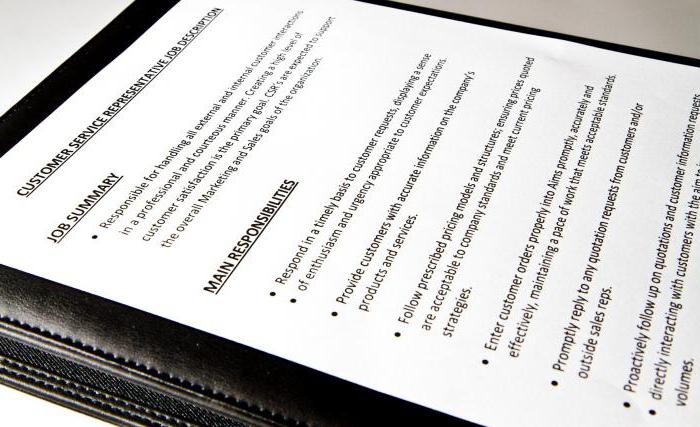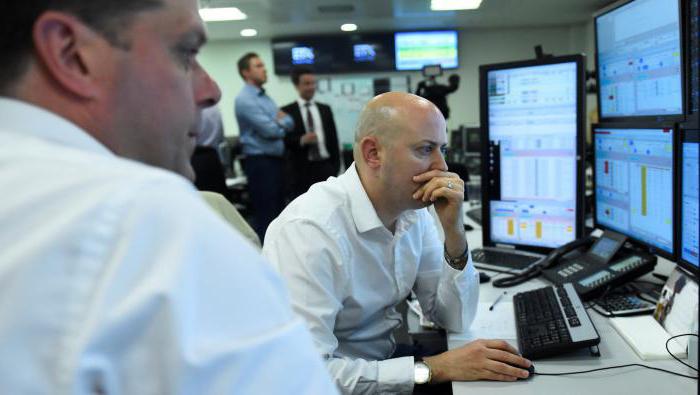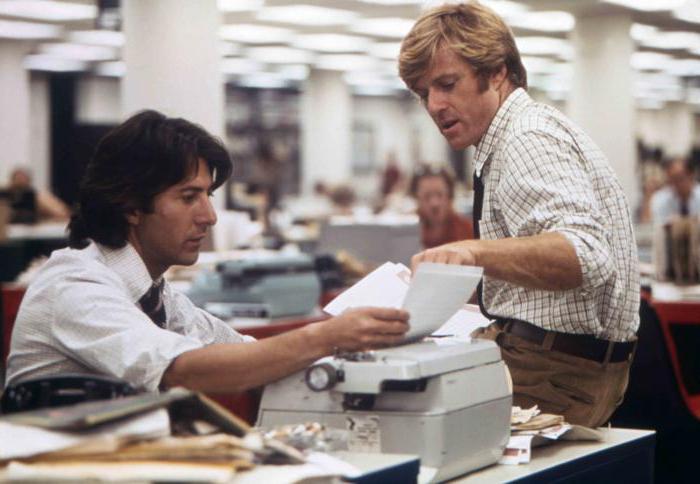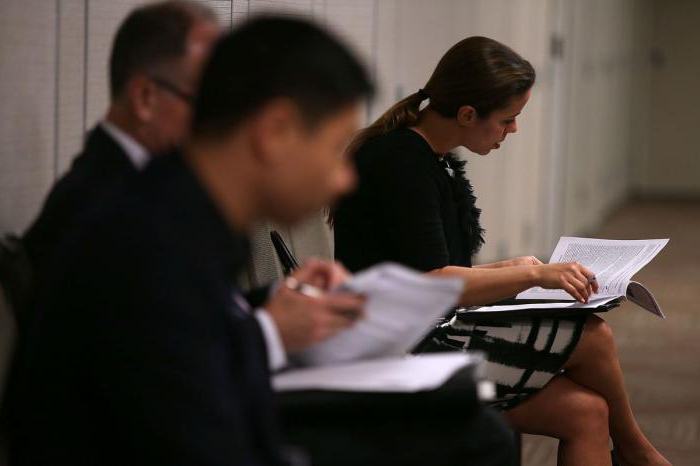Today's world regulates that any large organization has an economist. Such an employee carries out the solution of many important problems and tasks at the enterprise. In order to clearly imagine what is included in the list of duties of a specialist of this profile and understand the requirements for this profession, in fact, an economic professional standard is needed. Although for this profession it is still not there.

In the article we will consider what is included in the professional standard of an economist, what kind of benefit it can bring to the organization, and also what should be emphasized in the employment of this specialist, bearing in mind the fact that there is no professional standard for the profession.
What is a professional standard?
In May 2012, Presidential Decree N 597 “On measures for the implementation of state social policy” was issued. Since that time in Russia everywhere began to develop professional standards for all kinds of professions.
The interpretation of the very concept of a professional standard and the requirements for its preparation are presented in article 195.1 of the Labor Code of the Russian Federation. It says that the professional standard is a paper that lists the requirements for a specialist in this position. By this is meant:
- Availability of appropriate education.
- Work experience in the specialty (including the one that is recorded in the work book).
Skills Requirements
Article 195.1, in addition, defines the list of duties and the scope of issues that an employee should properly address in his post. It is worth noting that professional standards were established by state authorities, but at the same time they have exclusively recommendatory value.
According to the decree, the adoption of a professional standard in any organization is carried out if it is regulated by law or if this organization, in its own local act, includes the professional standard in the form of a mandatory norm.

Develops professional standards of the Ministry of Labor. For economists, the document has not yet been developed, as already mentioned, so you have to be content with the Qualification Directory of Posts and job descriptions.
Is there a difference in professional standards from the requirements established by the Qualification Handbook?
The qualification reference book of posts, ratified by the decision of the Ministry of Labor of Russia of 08.21.1998 N 37, includes such a position as an economist. This profession in the document is presented in a number of characteristics. There are such professions as:
- labor economist;
- procurement economist;
- distribution;
- material and technical supply;
- accounting;
- contractual and claim work.
Unlike the professional standard, the qualification guide carries out more superficial regulation. The document examined only three components of the economist profession.
The duties of an economist
It is worth noting that in the directory of posts his duties are defined in the most general way. In the professional standard of the economist, the responsibilities are presented more thoroughly, indicating the necessary experience and level of qualification in the industry.
The parameter “Specialist must know”
The qualification reference book of posts reflects only general information that an economist should be familiar with. There, for example, it is said that a specialist in economic profile must perfectly know:
- legal acts of the Russian Federation;
- planning materials;
- accounting and analysis of the enterprise.
The professional standard, in turn, is focused on that area of knowledge in which the specialist should be well versed. So, he notes that the specialist in financial monitoring should build his activities in accordance with the current legislation of the Russian Federation in the field of counteracting the legalization of income, as well as the classification of taking money.
Qualification requirements
The qualifications guide defines requirements only for the education and work experience of an economist. At the same time, the specialty of an economist is divided into two categories, and the specialty of the leading or chief economist on the document is not listed at all.
The professional standard regulates the level of education and the experience of the future economist is not so abstract. For example, in the place of the head of the unit for counteracting the legalization of criminally obtained incomes, a person who has received a special higher education and a person with at least 3 years of work experience can be employed.

Qualification is determined by the experience and education of a specialist. The following tariff categories are established:
- 10 - leading specialist;
- 9 - specialist of the second category;
- 8 - specialist of the first category;
- 7 - an employee without a qualification category.
For accountants, there is still a 6th category - without qualifications, and 10 and 9 are abolished.
An economist’s summary usually does not contain category data. You can determine this yourself according to the employee data:
- for the first category, higher education and work experience (required in the previous category) are required for at least 3 years;
- for the second - higher education and experience in the same or similar position for at least 3 years;
- without category - higher education without requirements for work experience or specialized secondary education and at least 3 years of work experience, or at least 5 years of work experience in related fields.
Professional Standard Requirements
Many expected that in June 2016 the government will approve the professional standard of the economist, but still this did not happen. So at the moment, we can distinguish a number of existing professional standards that are close to the position of economist:
- accountant;
- auditor;
- payment systems specialist;
- chief securities market;
- microfinance operations expert.
In the absence of requirements for the professional standard of a certain position by the state, the company has the right to develop an act, for example, a job description, based on existing ones. For example, you can use the professional standard of a labor specialist as a basis for drawing up job descriptions for a labor economist.

Job description
This document is a comprehensive outline of the basic functions, rights, duties and responsibilities of a specialist. The main direction of the economist’s official instructions is to outline the circle of actions of a specialist who carries out such work and to delimit his field of activity in the total set of responsibilities of the company’s specialists.
Job description allows you to solve a number of organizational tasks of the company, namely:
- evenly distribute work responsibilities among the personnel of the planning and economic service;
- helps the employee to complete the assigned tasks on time in full;
- allows you to get rid of inconsistencies and achieve the holistic functioning of the organization;
- determine the responsibility of the employee;
- to stimulate a specialist in the volume and quality of duties;
- improve the atmosphere in the workforce and avoid conflict situations.
Since, for example, there is no professional standard of a leading economist or assistant accountant, it is advisable to develop job descriptions in the organization.
Today, the specialty of an economist combines both inherent in most areas of the economy and individual characteristics that are characteristic only for a particular area. Therefore, at various enterprises and in various fields of activity, the job description of an economist will look different - this is normal.
For example, an organization’s job description may state that an economist has the right:
- Receive operational reports and working documentation necessary for the implementation of their duties.
- Make effective decisions without exceeding the limits of assigned authority.
- Plan and present at meetings proposals and ideas aimed at optimizing labor processes, including in their direct activities.
- Make suggestions on how to troubleshoot problems you’ve encountered.

Microfinance Operations Professional Standard
A person trained as an economist in financial work claims to be a specialist or chief economist in microfinance operations. In his labor activity, according to the professional standard, he must carry out such labor functions:
- organization and assistance in the implementation of microloan issuance operations;
- raising additional funds for the implementation of microfinance activities.
A simple economist can have a secondary education and work experience of at least a year, while a leading specialist must have a higher education in a specialty. The level of qualification generally established in the professional standard for a specialist is equal to five years of work in the specialty, for a leading specialist - 6 years.
Professional standard economist on the planning and implementation of financial control
Representatives of the profession described (along with legal and accounting specialists) can implement financial monitoring necessary to suppress the receipt of material income earned illegally. In the professional standard of the economist there are several labor functions that may be part of his duties, we list them.

Internal control
This function can only be carried out by an economist who has completed higher education. In addition, the economist must pass additional tests, which include retraining or advanced training programs.
For the implementation of the labor function, at least 7 months of work experience is required, while the professional standard does not regulate in which field the experience should have been gained (i.e., you can hire a specialist who previously worked with internal control, and the one who exercised financial control).
Financial investigation
Conducting financial investigations, as a rule, can be entrusted to an economist in financial matters. In this case, the employee must also comply with the standard and have higher education, passing training programs and retraining. Work experience - about a year. The skill level is 7.
Any of the responsibilities that a financial investigator performs requires a variety of conditions of employment. For example, one cannot accept persons with a criminal past for such an offense for offenses in the sphere of economics made out of mercenary motives and for hire.
Professional standard HR specialist
There are many fields of activity where an economist can be involved; another of them is personnel management. Here, it is also advisable to familiarize yourself with the professional standard.
Labor and wage economists may well fulfill the duties that are typical of HR experts. So, economists can be involved:
- to organize the circulation of documents at the enterprise or in specific departments;
- to provide the organization with the necessary staff;
- certification of employees;
- to create an atmosphere conducive to the professional development of staff;
- to pay wages;
- to create corporate policies and standards.

In order to carry out the first function, incomplete vocational education is enough, and then higher education is not enough. In order to perform certain functions, you need to complete a specialty or master's program. No specific requirements for work experience are presented. The level of experience for attracting documentation to the turnover is 6, for the remaining duties of a specialist - 7.
The positive aspects of having a professional standard in the company
Even ratified professional standards are only advisory in nature. Perhaps in the near future there will be a state professional standard for an economist. Precisely because the document has not yet been developed, the question arises whether it is necessary to develop a professional standard for an economist in a particular organization where such a specialist is employed?
There are several positive aspects of adopting a professional standard within an individual company. These include the following:
- When employing, the employer will have legal grounds for refusing the candidate if the data from the economist’s resume do not meet the requirements indicated in the professional standard.
- In the event of a forced staff reduction, a professional standard can also assist the owner of the organization.
- The professional standard will simplify the dismissal of an employee who does not fulfill the duties assigned to him.
True, drawing up a professional standard for a small company cannot always be justified, for example, if there is only one economist in the staff. All complaints to him in some cases are better defined in the job description. The basis for the development of such a document can be a qualification directory of posts and a similarly ratified occupational standard.
Of course, private firms can decide for themselves whether they need a professional standard, which cannot be said about state organizations. Professional standards of an economist are necessarily present in a budget organization.